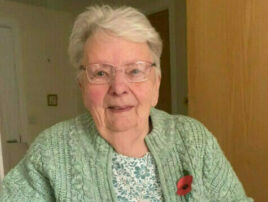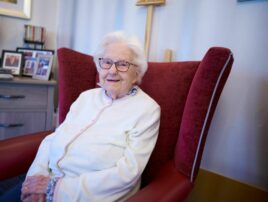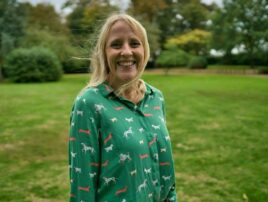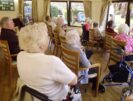
Monday 13th November 2023
The Nuns’ study main finding that’s been ignored
Louise Morse
The nuns were retired teachers and were ideal for the study because their stable, relatively similar lives excluded variables and simplified research. They didn’t smoke, drank little, if any alcohol, ate in convent cafeterias, and most had been teachers in Catholic schools. At first, Dr Snowdon's condition that nuns donate their brains for research after death was a stumbling block for some of the sisters, but Sister Rita Schwalbe, the convent's health administrator when the study began, said that as nuns they had made ‘the difficult decision not to have children. This is another way of giving life.’ And one, Sister Nicolette said, 'After the resurrection, our bodies will be perfect. We'll be so happy we won't care what happens to our brains.' The story in the New York Times in 2001 colours the story with the nuns’ characters, as well as the empathetic Dr Snowdon’s.
For 15 years the nuns’ genes were analysed, and they were tested on a range of physical and mental exercises, such as their strength and ability to balance, how many words they could remember minutes after reading them on flashcards, how many animals they could name in a minute and whether they could count coins correctly. The autobiographical essays they wrote for their order in their 20's, when they took their vows, were scrutinized, and their words plumbed for meaning. After they died, their brains were removed and shipped to a laboratory where they were autopsied. Among the findings were that early language ability may be linked to lower risk of Alzheimer's because nuns who packed more ideas into the sentences of their early autobiographies were less likely to get Alzheimer's disease six decades later, and that nuns who expressed more positive emotions in their autobiographies lived significantly longer than those expressing fewer positive emotions.
Perhaps the most surprising finding was that there was very little correlation between neuropathology (protein deposits) in the brains of Nuns who had exhibited dementia while they were alive and those who had not. In fact, ‘the correlation between neuropathological lesions and cognition was modest, accounting only for about a quarter of the variance of cognition among older adults. As such, the concept of resilient aging has emerged in recent years as a useful construct in characterizing such individuals who maintain intact cognitive function amidst evidence of significant AD pathology.’[i]
In other words, many of the Nuns’ brains showed all the signs of Alzheimer’s disease, but their owners had shown no sign of it while they were alive. In 80% of the cases the pathology did not concur with the symptoms seen during life. Other studies since have shown the same, with many pointing to vascular health as the chief determinant.
Despite the findings (and others since), drugs that remove the deposits have been developed and are being marketed as capable of holding back the progression of the disease by a few months. The BBC Podcast publicity notes, ‘Tackling it remains a huge challenge, but many researchers think we could soon develop a treatment to clear plaques and tangles from our brains as they develop. Whatever the future holds, thanks to the generosity of Sister Mary and the other nuns, we have a greater understanding of ageing and brain function.’ It’s a huge puzzle, as Sister Mary’s brain clearly showed that with all the pathology of Alzheimer’s, she did not live with the disease.
Two other important findings were that the nuns’ level of education and their attitudes to life, positive or negative, were contributing factors to avoiding or developing the condition. Dr Snowden contended that the nuns’ spirituality and community living also helped. Other research shows that having a faith and attending a place of worship contribute to well-being and longer life. ‘You don't necessarily have to join a church or join a convent,’ Dr Snowdon said. ‘But that love of other people, that caring, how good they are to each other and patient, that's something all of us can do.'
More from Pilgrims' Friend Society

Reimagining care falls to all of us >
Dr Anna Dixon MBE shares the recommendations of the Reimagining Social Care Commission's report

Making Christmas Extra Special >
Those who remember Victor Meldrew will recall his tagline, ‘I don’t believe it!’ And he certainly showed an openness to new experience.


































